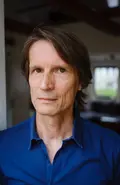The Eating Self
Duration
10/2012
- 09/2014
Funding
Fritz Thyssen Stiftung :
24 000 Euro
Duration
10/2014
- 09/2015
Duration
10/2015
- 04/2017
Project management

Team
Obesity is currently described as a problem that is assuming epidemic proportions in modern societies, particularly in the USA. Based on this observation, the present project aims to write a history of eating, being obese, health and its regulation in the USA since the middle of the 19th century. Eating and obesity are such productive phenomena for historical analysis because they lead into the centre of modern, liberal social order.
In the course of the Enlightenment and Atlantic revolutions, the "free self" had moved into this centre. On the one hand, the "free self" was set as a starting point, but on the other hand it was required to prove itself permanently as such by using its freedoms productively and responsibly, thus ensuring the existence of the liberal order. From the middle of the 19th century onwards, an efficient body became more and more the goal and expression of responsible action. The ability of individuals to function as liberal individuals and the success of the liberal order as a whole seemed increasingly evident in their bodies. Against this background, overweight people were seen as problematic, and diet, fasting and fitness movements began to emerge. From the middle of the 19th century to the present day, problems of nutrition, health and fitness are extremely virulent, and they always revolve around the abilities of people as self-regulated, rational individuals and thus around a basic principle of a modern, liberal social order.
The project examines this period on the basis of three sets of questions: First, food and nutrition as a central force in the formation and regulation of modern societies and corresponding subjectivities will be analyzed. Secondly, it will be examined how nutrition corresponded with socio-cultural differentiations along categories such as "race, class, gender" and how differences between people were thus established and perpetuated. Thirdly, the project will interweave reflections on discourses, institutionalizations, and ways of acting and thinking of concrete historical actors. The project research will focus on the level of the acting subjects, which will work out the effectiveness of the discourses on food and the body in people's lives.
